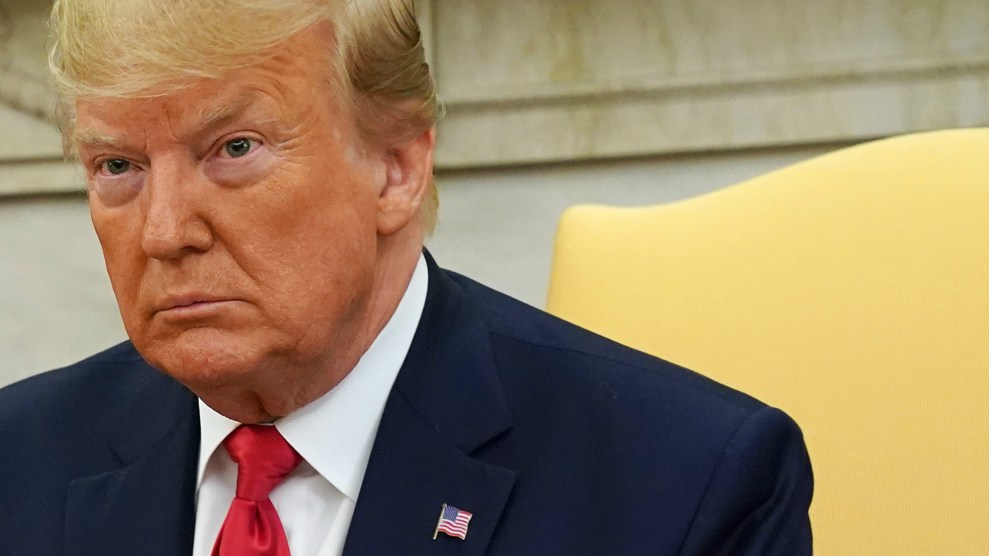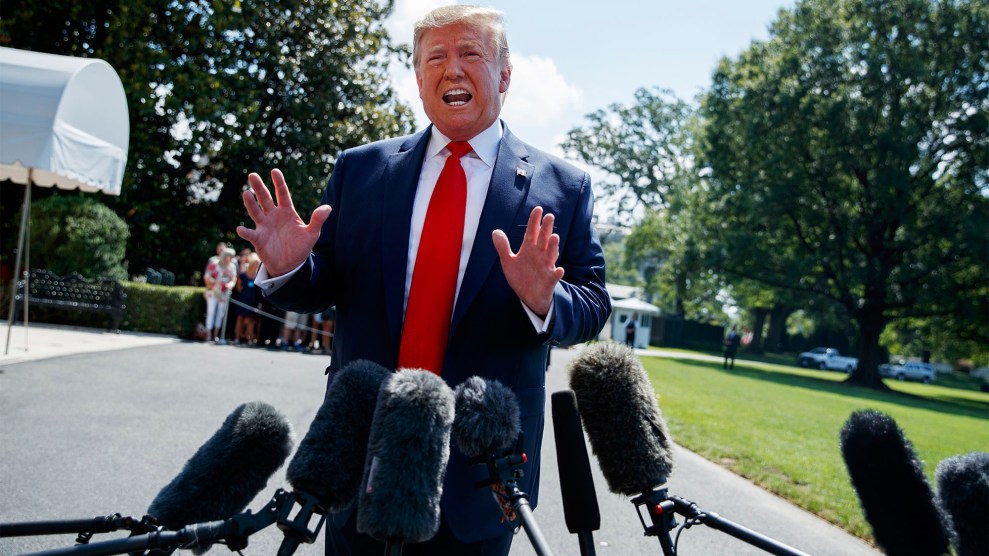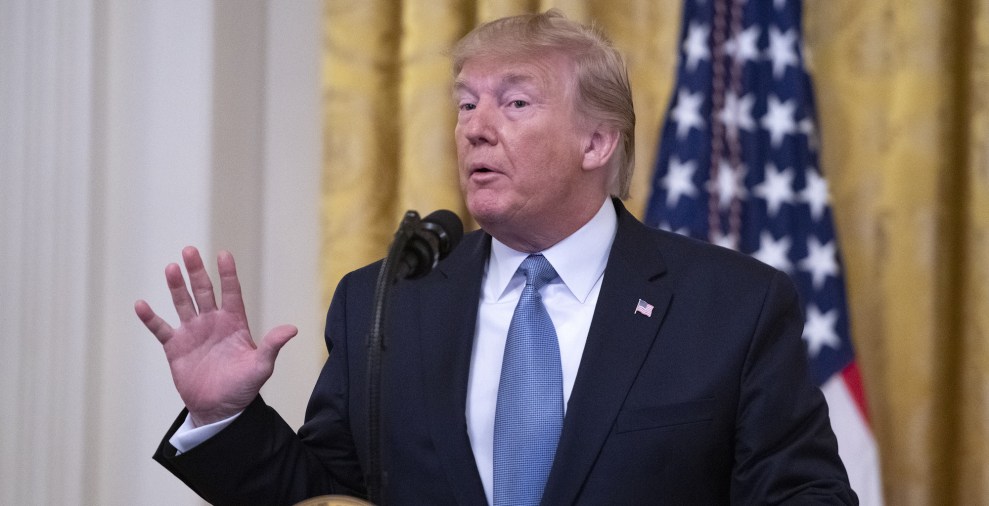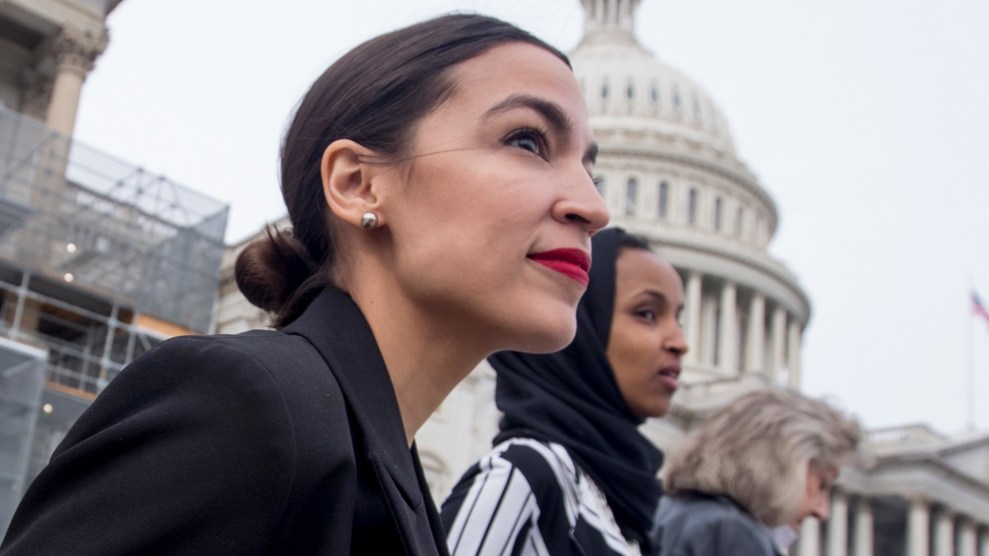
Alex Wong/Getty
As just about everyone knows by now, President Trump tweeted on Sunday that four “progressive” Democratic congresswomen should “go back and help fix the totally broken and crime infested places from which they came.” Following this tweet and his subsequent doubling-down on it, many have condemned his statements as racist. But many also have defended his comments, including White House press secretary Stephanie Grisham, House Minority Leader Kevin McCarthy, and Sen. Lindsey Graham (R-SC). The basis of the White House’s argument? American exceptionalism.
Grisham, for example, tweeted, “His message is simple: the U.S.A. is the greatest nation on Earth, but if people aren’t happy here they don’t have to stay.”
So typical to watch the mainstream media and Dems attack @realDonaldTrump for speaking directly to the American people. His message is simple: the U.S.A. is the greatest nation on Earth, but if people aren’t happy here they don’t have to stay.
— Stephanie Grisham (@PressSec) July 15, 2019
That message, the idea that the US is better than any other nation, is American exceptionalism in a nutshell. The narrative of American exceptionalism is that the US “enjoys an exceptional global position today because it is, well, exceptional,” as a writer for Foreign Policy put it. Mother Jones explained in 2017 that, “People often equate the expression with the notion that God made America ‘a city upon a hill,’ in the words of the Puritan colonist John Winthrop.”
American exceptionalism has also been used as justification for a history of violence that ranges from the mass killing of Native Americans during the United States’ westward expansion to the civilian bloodshed in the Middle East during the War on Terror. In 2012, the Republican Party included “American exceptionalism” as one of the party platform’s seven sections; at present, it is mentioned twice there. Former Democratic President Obama has said, “I believe in American exceptionalism with every fiber of my being.”
Nevertheless, in 2015, Trump said he didn’t believe in American exceptionalism. As Mother Jones‘ David Corn wrote in 2016:
In late April 2015, a month before Trump officially announced his candidacy, he spoke at an event called “Celebrating the American Dream” that was hosted in Houston by the Texas Patriots PAC, a local tea party outfit…About an hour into the program, McIngvale posed Trump this query: “Define American exceptionalism. Does American exceptionalism still exist? And what do we do to grow American exceptionalism?”
Trump replied:
I don’t like the term. I’ll be honest with you. People say, “Oh he’s not patriotic.” Look, if I’m a Russian, or I’m a German, or I’m a person we do business with, why, you know, I don’t think it’s a very nice term. We’re exceptional; you’re not. First of all, Germany is eating our lunch. So they say, “Why are you exceptional. We’re doing a lot better than you.” I never liked the term. And perhaps that’s because I don’t have a very big ego and I don’t need terms like that.
On the other hand, he may have been merely foreshadowing his own presidential ambitions. “I’d like to make us exceptional,” he continued. “And I’d like to talk later instead of now.” Two months later, he announced his presidential candidacy.








